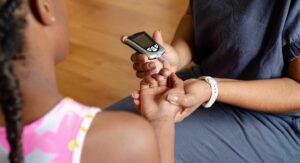Type 2 diabetes has emerged as a significant health challenge, affecting millions of people globally. The journey to controlling Type 2 diabetes is not just about medication; it encompasses lifestyle modifications, dietary changes, and a deep understanding of the disease. In this comprehensive guide, we delve into the various aspects of the cure for Type 2 diabetes, aiming to provide readers with practical insights and strategies to effectively control their blood sugar levels and enhance their overall well-being.
Contents
Is There Going To Be a Cure For Type 2 Diabetes?
 There is no definitive cure for Type 2 diabetes, a chronic condition that affects how the body processes blood sugar (glucose). However, significant strides have been made in its management and treatment. Researchers and medical professionals are continuously exploring various avenues, including advanced medication, innovative therapies, and even potential surgical options like bariatric surgery. This has shown promise in remission for some patients.
There is no definitive cure for Type 2 diabetes, a chronic condition that affects how the body processes blood sugar (glucose). However, significant strides have been made in its management and treatment. Researchers and medical professionals are continuously exploring various avenues, including advanced medication, innovative therapies, and even potential surgical options like bariatric surgery. This has shown promise in remission for some patients.
Lifestyle changes can also lead to significant improvements, potentially reducing or even eliminating the need for medication in some individuals. These advancements are promising and have improved the quality of life for many with Type 2 diabetes, but they stop short of being a universal cure.
The future holds promise, though, as the medical community is actively engaged in research aimed at finding a cure. For now, managing the condition effectively remains the primary focus. And this is with a significant emphasis on personalized treatment plans and preventive measures.
What Is The Fastest Way To Cure Type 2 Diabetes?
Generally, there is no known “fast cure” for Type 2 diabetes. However, there are effective ways to manage the condition and potentially achieve remission, where blood glucose levels are maintained within a normal range without the need for diabetes medication. Achieving remission does not mean the diabetes is permanently cured, but it can significantly reduce the risk of diabetes-related complications.
Weight Loss
For individuals with Type 2 diabetes who are overweight, shedding extra pounds can have a profoundly positive impact on blood sugar control. Weight loss improves the body’s ability to use insulin and process glucose, thereby reducing blood sugar levels. In many cases, significant weight loss can be achieved through dietary changes and increased physical activity. However, in some instances, particularly for those with a significant amount of weight to lose, bariatric surgery might be considered. This surgery has been shown to lead to remission of Type 2 diabetes in a substantial number of patients, although it carries its risks and requires a lifelong commitment.
Medication Management
 In conjunction with lifestyle modifications, medications can play a vital role in rapidly controlling blood sugar levels. Metformin, a commonly prescribed first-line medication for Type 2 diabetes, works by improving the body’s sensitivity to insulin and reducing the amount of glucose released by the liver. Other medications might be prescribed based on individual needs and how well the blood sugar is being controlled. In some situations, especially where blood sugar levels are very high, insulin therapy might be temporarily necessary.
In conjunction with lifestyle modifications, medications can play a vital role in rapidly controlling blood sugar levels. Metformin, a commonly prescribed first-line medication for Type 2 diabetes, works by improving the body’s sensitivity to insulin and reducing the amount of glucose released by the liver. Other medications might be prescribed based on individual needs and how well the blood sugar is being controlled. In some situations, especially where blood sugar levels are very high, insulin therapy might be temporarily necessary.
Regular Monitoring
Consistent and regular monitoring of blood sugar levels is crucial in managing Type 2 diabetes effectively. This self-monitoring helps in tracking how well the diet, exercise, and medication regimen is working, and it provides immediate feedback for any necessary adjustments. Continuous glucose monitoring systems can offer a more detailed picture of blood sugar trends throughout the day, aiding in finer adjustments in lifestyle and medication.
Medical Supervision
Finally, effective management of Type 2 diabetes requires ongoing collaboration with healthcare professionals. This includes regular check-ups with a doctor, consultations with dietitians for dietary management, and possibly working with a diabetes educator or personal trainer for exercise plans. These experts can provide valuable guidance and support. And, helping to tailor a diabetes management plan that’s effective, sustainable, and responsive to the individual’s changing health needs.
Implementing these strategies requires commitment and often significant lifestyle changes. However, the benefits they bring in terms of blood sugar control and overall health improvement can be substantial. Ultimately, making them critical components in the management of Type 2 diabetes.
What Are Some Lifestyle Changes For Type 2 Diabetes?
 Lifestyle changes play a crucial role in the cure for Type 2 diabetes, helping to control blood sugar levels, reduce the risk of complications, and improve overall health. Here are some key lifestyle changes that are often recommended:
Lifestyle changes play a crucial role in the cure for Type 2 diabetes, helping to control blood sugar levels, reduce the risk of complications, and improve overall health. Here are some key lifestyle changes that are often recommended:
Dietary Modifications
One of the most effective lifestyle changes for managing Type 2 diabetes is altering one’s diet. This involves reducing the intake of refined sugars and carbohydrates, which cause rapid spikes in blood sugar levels. Instead, the focus should be on a balanced diet that includes plenty of fiber-rich foods like vegetables, fruits, whole grains, and legumes. Fiber helps slow down the absorption of sugar into the bloodstream, leading to more stable blood sugar levels. Including lean proteins and healthy fats in the diet is also beneficial.
Increased Physical Activity
Regular exercise is crucial for individuals with Type 2 diabetes. Exercise increases insulin sensitivity, which means cells are better able to use available insulin to absorb glucose during and after activity. A mix of aerobic exercises (like walking, swimming, or cycling) and resistance training (such as weight lifting or bodyweight exercises) is most beneficial. The goal should be to engage in at least 150 minutes of moderate to vigorous physical activity per week, as recommended by health guidelines.
Weight Management
For those with Type 2 diabetes, especially those who are overweight, weight management is key. Even a modest weight loss of 5-10% can significantly improve blood sugar control, insulin sensitivity, and overall health. This can be achieved through a combination of dietary changes and increased physical activity. For some individuals, more significant weight loss may be necessary, which should be approached under medical supervision.
Stress Reduction
Stress can have a significant impact on blood sugar levels. When stressed, the body releases hormones like cortisol and adrenaline, which can cause blood sugar levels to rise. Therefore, managing stress through techniques like mindfulness, meditation, yoga, or other relaxation practices can be beneficial. Getting adequate sleep and maintaining a balanced lifestyle also play a role in stress management.
Avoiding Harmful Habits
Certain habits can exacerbate Type 2 diabetes or increase the risk of complications. Smoking, for instance, increases the risk of heart disease and can worsen circulation issues, which are already concerns for those with diabetes. Excessive alcohol consumption can also interfere with blood sugar control and medication effectiveness. Therefore, avoiding or quitting smoking and limiting alcohol intake are important steps in managing Type 2 diabetes.
Each of these lifestyle changes can contribute significantly to the management of Type 2 diabetes. It’s important to note that these changes should be implemented gradually and under the guidance of healthcare professionals. This will help to ensure they are safe and effective for each individual’s unique health circumstances.
Conclusion
In conclusion, a cure for Type 2 diabetes involves a holistic approach that incorporates significant lifestyle changes. By focusing on a balanced diet rich in fiber, lean proteins, and healthy fats, engaging in regular physical activity, and avoiding harmful habits like smoking and excessive alcohol consumption, individuals can significantly improve their blood sugar control and overall health.
While these changes may seem challenging at first, they offer a powerful means to live a healthier, more balanced life with Type 2 diabetes. Remember, small steps can lead to big changes, and the journey to better health is always worth it. Do you want to get rid of diabetes? Join our online diabetes treatment program and reverse Diabetes naturally through lifestyle changes such as a Personalized Diet plan, Exercise, Yoga, dieticians, and health coaches.

